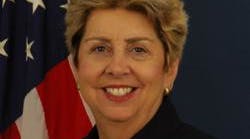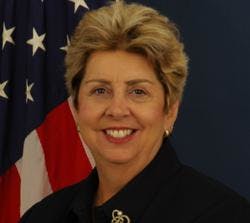Who would want to be the Federal Motor Carrier Safety Administrator? Talk to trucking association reps, carrier execs, labor unions, safety advocates, congressional aides, and even some DOT staffers, and you’ll hear the same thing: It’s a no-win job.
No matter what trucking’s top regulator does, somebody’s going to be unhappy. Often, everyone is unhappy, and most “stakeholders”—to use the parlance of our times—have lawyers who get paid a decent wage to sue the federal government.
So, just as new administrations must rely on temps to fill in leadership gaps until a president can get his own people in place (as we mentioned in Part 1), it is historically difficult to keep the best and brightest late in a president’s term, and qualified candidates may not be willing to take on a short-term posting.
That’s what we have with FMCSA today: The agency’s top lawyer was named “acting” administrator for seven months after Anne Ferro left and he has since been given the responsibilities—though not the title—of an administrator.
Because Scott Darling, as acting administrator, had been largely out of sight, he’d been out of mind—at least mine—as well. There might have been an occasional proclamation or press release with a boilerplate “safety is the top priority at FMCSA” quote, but I hadn’t seen or heard him until an appearance before a Senate committee in early March.
And I didn’t think he, as a lawyer, handled his witness duties very well. Grilled about specific reforms to the Compliance, Safety, Accountability program, he was either uncertain or evasive. Similarly, Darling couldn’t defend the agency’s unpopular position regarding crash accountability. (A recent FMCSA analysis concluded that incorporating at-fault determinations would be time consuming and expensive, and would not improve the agency’s ability to identify those carriers most at risk of future accidents. But if Darling knew, he wasn’t saying.)
Also, his appearance came as several senators had begun to question why so many top jobs at DOT agencies hadn’t been filled. Darling’s own appointment had only a couple of weeks remaining at the time, but both Darling and Transportation Secretary Anthony Foxx referred all such questions to the White House.
After that hearing, I’d assumed he was just a placeholder ready to get back to leading the FMCSA legal team. That’s when I began to ask around about possible replacements and the hazards associated with an agency being run by fill-in help.
An FMCSA fill-in administrator herself, former career employee Rose McMurray proved to have the most prescient take on these leadership transitions—that, and she was willing to go on the record.
McMurray, now a private-sector transportation safety and regulatory consultant, correctly anticipated Darling’s staying on. More significantly, she offered some insight as to what this means for FMCSA.
“Basically, staff may view the acting person as perhaps not securing eventual confirmation, so they might be reluctant to carry out a policy they think is untenable,” she said. “In my case, what was difficult was certain junior political positions were filled before Ferro came on board. Those political people had to report to me; some didn't like that.”
But Darling is a political appointee, as opposed to a career civil servant such as McMurray. And while being “in the club” may give him some credibility with the policy people, he’s still in a “fragile” position, as both staff and potential successors may be hesitant to fully embrace his initiatives.
“In general, ‘actings’ are unable to command the full support of others because they don't have the imprimatur of being vetted and successfully getting through the nomination process,” McMurray said. “In that regard, they are in a weakened position. However, if the Secretary publicly affirms their legitimacy, it helps to signal to others that he or she has the confidence of the Administration.”
I’m thinking that the DOT’s announcement of a technical maneuver to keep Darling in place isn’t quite a ringing endorsement, but Foxx is a busy man. On the other hand, the Secretary has sent Darling and FMCSA some help.
In a Jan. 29 memo to staff, Darling announced that Daphne Jefferson would return to FMCSA to serve as deputy administrator, to replace the departing Bill Bronrott. She had served as an FMCSA associate administrator from 2011 to 2013 before being named a DOT deputy assistant secretary.
The new post is a “higher profile” one, McMurray noted.
“It could mean that the agency needs a stronger manager to focus on operational issues like hiring, finance, etc., which is her strength,” she said. “I have asked a few of my contacts to tell me what they're hearing but I'm guessing Jefferson is returning to FMCSA to deal with employee issues and weak operational performance. Darling's poor performance on the Hill suggests, to me, that he was ill prepared and not prepped to testify effectively.”
Indeed, McMurray pointed to an “exodus of experienced executives” under Ferro, resulting in a shift in the FMCSA leadership: Many people now at the top have enforcement backgrounds and limited federal government experience.
“As in most bureaucracies, you need good technical people who often don't excel at dealing with people issues,” McMurray said. “As people in FMCSA retired or went to work in other agencies, there was a certain amount of ‘brain drain’ of leadership officials who had many years of specialized federal government experience in congressional relations, administrative law, research and data analysis, etc. The loss of those people has been felt, I am told by current FMCSA staff.”
What does it all mean? FMCSA certainly has a full regulatory agenda already in place. So some folks in trucking might assume that the industry is better off with an agency hampered by a leadership vacuum. On the other hand, I’d be worried about bureaucratic momentum: Might an agency without fully vetted and duly endorsed administrator start rolling a little too fast, because professional regulators regulate—that’s what they do?
To be optimistic, I see this as a time for trucking to take the initiative and demonstrate that the industry can and will work to improve safety without mandates.
Time—and the next elections—will tell.





